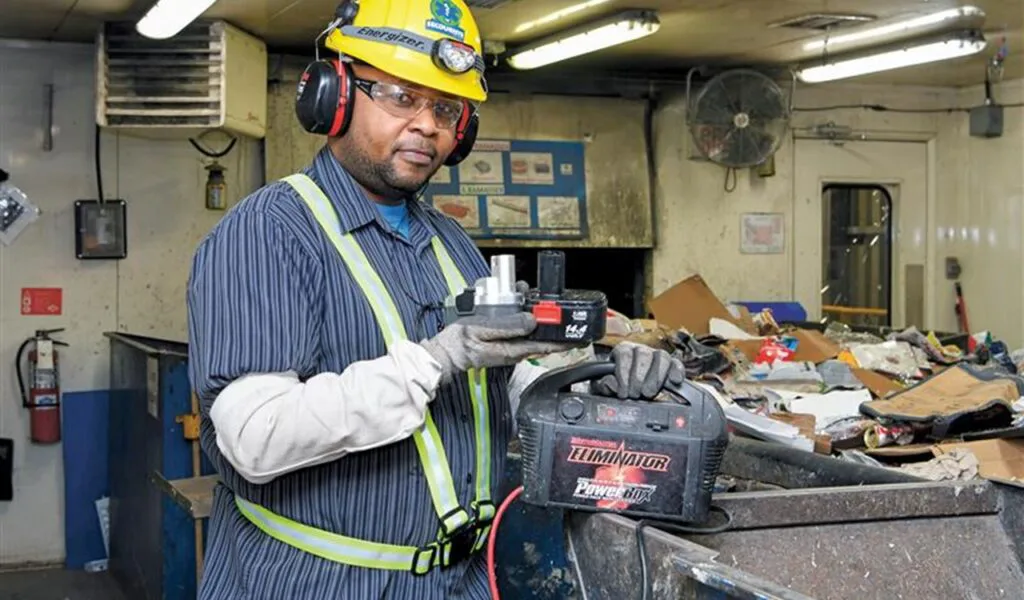What you may not know is that some materials can do damage long before they arrive at the sorting center.
This is the case with lithium batteries.
Placed in the blue bin, they are crushed and break during transport. They can then explode and catch fire in the truck or during sorting. With all the paper and cardboard that ends up in the recycling bin, fire spreads quickly.
Proper sorting of materials helps avoid incidents that delay collection and expose employees to injury.
Recognizing lithium batteries
The vast majority of the small electronic devices we use run on lithium batteries. From cell phones and tools to sports watches and children’s toys. Here are some examples of the most common objects that contain them:
Serious consequences
By catching fire, lithium batteries endanger the health and safety of employees. They can also damage equipment.
When a fire breaks out in a truck, it can take several minutes for the driver to realize it. He then had to contact the fire department and quickly find a safe place to unload the contents of his dumpster. Firefighters then put out the blaze.
In the event of a fire in the sorting center, whether small or large, the machines have to be shut down and all the people working there evacuated.
When you know that in some cases it can take several days to receive a missing part for repair, it’s a good reason to do the right thing.
A thirty-minute stoppage of the sorting line alone costs taxpayers several thousand dollars.
Simple solutions
If you’re planning a trip to the ecocenter, take the opportunity to bring your batteries with you. They are collected along with household hazardous waste.
You can’t go to the ecocenter and prefer libraries? But don’t worry, battery recycling boxes from Appel à recycler are available at most municipal libraries. They can also be found in many stores, such as pharmacies and hardware stores.
For the full list, please visit appelarecycler.com.
You can also find a depot by visiting cmquebec/tesresidusdangereux.com.
To find out more about the materials accepted and refused in the recycling bin, consult Ça va où?

